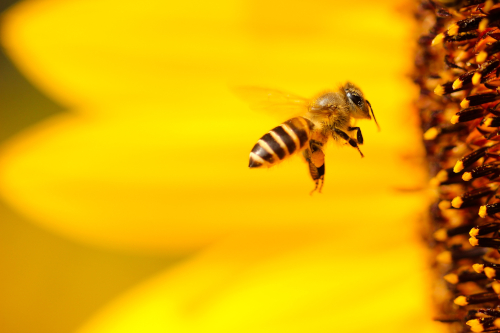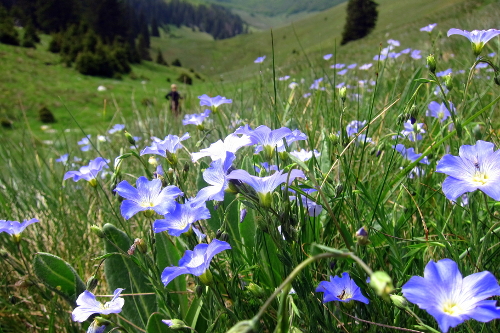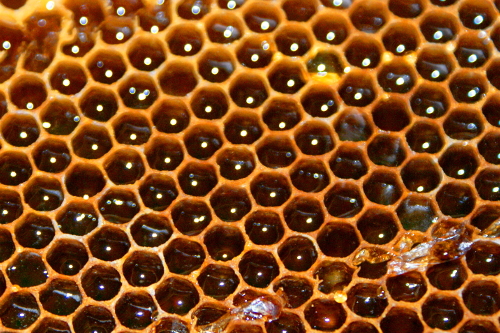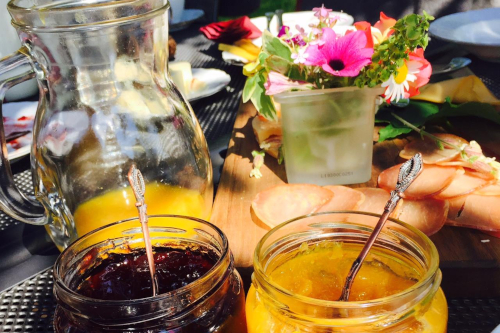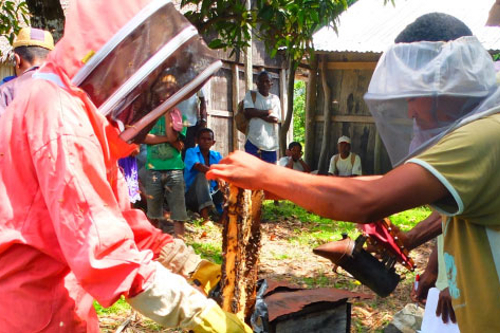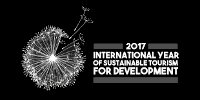The Importance of Bee-ing in Travel & Tourism
/Bees. They’re essential to our ecosystem and human life, but they, and so it, are increasingly threatened. What on Earth has that got to do with travel and tourism?
There are more than 20,000 species of bees in the world today, but more than 25% are under threat.
“If the bee disappeared off the surface of the globe then man would only have four years left to live” ~ Maurice Maeterlinck, The Life of the Bee.
is quite possibly right (often misattributed to Einstein). Let’s hope we never find out.
Bees in Tourism
It’s a relationship that most people haven’t thought about.
Can you imagine staying in a place that doesn’t maintain its trees and flowers for guests’ aesthetic pleasure? That doesn’t offer guests delicious food including pollinated fruit and vegetables, tea and coffee? Or that doesn’t have honey?
That’s what we’d get if it weren’t for bees.
Where would we be without healthy national parks, flora in ecotourism, or even destination weddings and honeymoons looking pretty?
We take for granted the health of land and plants, key to tourism destinations looking attractive.
We might occasionally be grateful to gardeners we witness maintaining grounds, or delivery drivers dropping off produce, appreciating their labour. But behind every great gardener or food supply chain is an army of helpers in the form of bees.
The Bees Needs
Bees are multi-skilled sustainability leaders:
- They pollinate our flora, supporting approximately 1/6 of flowering species worldwide. Not only do bees build bee-autiful environments for us to enjoy, but they perpetuate and nurture floral growth, creating attractive habitats for insects and birds.
- They pollinate our food. The honeybee is the world’s top pollinator of crops: approximately 400 different agricultural types of plant. Around 80% of US commercial crops are dependent on bees’ pollination for reproduction which increases yields and quality. If it weren’t for bees, we wouldn’t have asparagus, almonds, apples, blackberries, blueberries, broccoli, brazil nuts, beans, cantaloupes, cucumbers, cranberries and cherries – and that’s just the a, b, c…
- They pollinate our food’s food, like clover and alfalfa, fed to cattle, with implications for our meat and dairy.
- They pollinate other crops key to our daily lives, such as cotton and flax, used for clothes, homes, feed and fertiliser.
- They support other non-pollinated crops. With their pollination work, they help the local environment with biodiversity stimulation.
- They produce honey and honeycomb, including important anti-bacterial properties used in alternative medicinal products, like royal jelly. In fact, they are the only insect that produces food eaten by man, and honey is the only food that includes all the substances necessary to sustain life!
The value of bees globally is billions commercially, approximately $577 billion including other pollinators, not to mention priceless for our ecosystem and health. (Intergovernmental Science-Policy Platform on Biodiversity and Ecosystem Services on pollinators, pollination and food production, 2016)
On Bee-ing Threatened
Concerns over bee numbers began to emerge in the late nineties. It’s not easy to count bees, but studies have consistently shown a decline over the last decade, regardless of country, species, or crop.
On the IUCN Red List, five wild species (5.5% bee species) are currently listed as Critically Endangered, eight as Endangered (8.8%) and ten as vulnerable (11%). That’s over 25% bee species being of concern. A further four (4.4%) are near threatened. In Europe at least 37% bee species are in decline, with 57% bee species data deficient and unknown, including the state of the Western Honey Bee. (IPBES, 2016)
Linked to the catastrophic loss of biodiversity caused by man-made production and consumption, industry, land use change and habitat loss, with fewer wild plant species to feed on, bees' immune systems become compromised and as a result, they are much more susceptible to diseases.
‘Colony Collapse Disorder' is seen when pathogens, including various fungi, parasites and viruses, move through hives causing harm, along with direct impacts of synthetic chemicals like pesticides.
Bees are under pressure too – industrial product-maximizing beekeeping practices for bee-pollinated crops and the impact of climate change all act to negatively exploit overworked colonies.
A 2020 study reveals bumblebees are currently disappearing at rates “consistent with a mass extinction”, and are on course to be wiped out in just a “few decades”, signalling, “We have now entered the world’s sixth mass extinction event, the biggest and most rapid global biodiversity crisis since a meteor ended the age of the dinosaurs”
As bee numbers decline, so will our biodiversity and crop yields, pushing the price of pollinated crops up, including our food and fabrics. The UN ‘The State of the World’s Biodiversity for Food and Agriculture (FAO, 2019) report has warned that the loss of soil, plants, trees and pollinators such as birds, bats and bees undermines the world’s ability to produce food.
What can we do to halt the decline and reverse the effects?
Bee-ing Sustainable
Organic farms provide forage as food for bees and generally employ less intensive agricultural methods to prevent the pollinators from being ‘overworked’.
Many of our partners' destinations keep bees as an important part of the ecosystem balance.
Just two hives can pollinate an entire mid-sized garden for thriving plants!
Keeping bees can support local agriculture, food, biodiversity, jobs and the production and selling of honey products, so community, commerce and local economy.
In Croatia, Linden Tree Ranch and Retreat is even named after a tree, aka the Bee Tree, whose flower attracts and consequently fragrantly flavours the honey there. You'll be spoiled with Maggy's delicious home-made bread served with all organic, natural, local bee-produced honey. Bee a cowboy here, stay and see for yourself >
In Madagascar, in the rural Anosy region, most of the population depend on farming for survival. In the increasingly unpredictable climate, droughts are common leading to failed harvests or low yields. A rapidly expanding population compounds these traditional livelihoods increasingly unable to provide sufficient and stable incomes for rural families, forcing communities to use forest and marine resources around them, leading to overexploitation, habitat destruction and loss of biodiversity. Madagascar’s honeybee, Apis mellifera unicolor, is one of the country’s 150,000 endemic species at risk from habitat loss.
Honey bee-keeping creates a valuable income stream, reduces pressure on natural resources, and actively supports biodiversity in this country where 75% of flora and fauna is dependent on insect pollination for survival. As it’s neither time nor labour intensive, beekeeping can complement existing livelihoods enabling vulnerable households to supplement their income, while crucially contributing to the pollination of the surrounding crops and littoral rainforest. It can also support gender equality by securing female representation among primary beekeepers.
The charity’s project worked to improve the viability and sustainability of beekeeping as a livelihood amongst rural communities in the region, increasing local capacity in beekeeping and equipping beekeepers with the skills and resources to apply modern beekeeping practices. Sharing skills and knowledge within the communities and between beekeepers themselves amplified the project’s impact and led to increased yields, healthier colonies and strengthened disease prevention. This enhanced product quality, improving the honey value chain through to establishing secure routes to market, and the project’s long-term sustainability and replicability.
Bee charitable, volunteer in community development and conservation in Madagascar >
Bee Aware
In many landscapes, or when an orchard stops blooming, farmed honeybees can compete with wild bees for food, actually making it harder for wild species to survive. A healthy environment needs bees — but not necessarily honeybees.
Concern for honeybees has helped raise awareness of the importance of more land free from pesticides and covered with wildflowers and trees. When flowers are abundant, it’s an environment with plenty of pollen good for both honeybees and wild bees.
Aren't bees amazing? We must protect them! We have a lot to thank them for.
Be mindful of the importance of supporting our bees, and their supporters - Please do share the Importance of Bee-ing in Travel!

